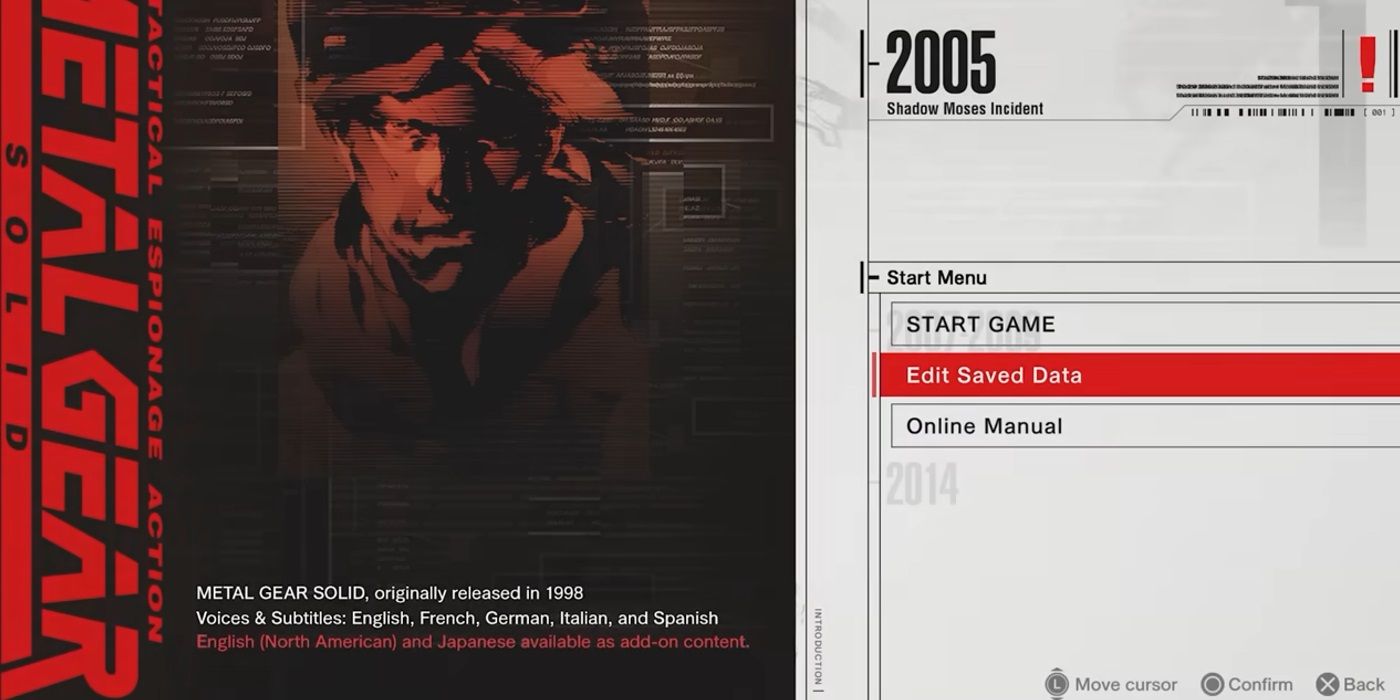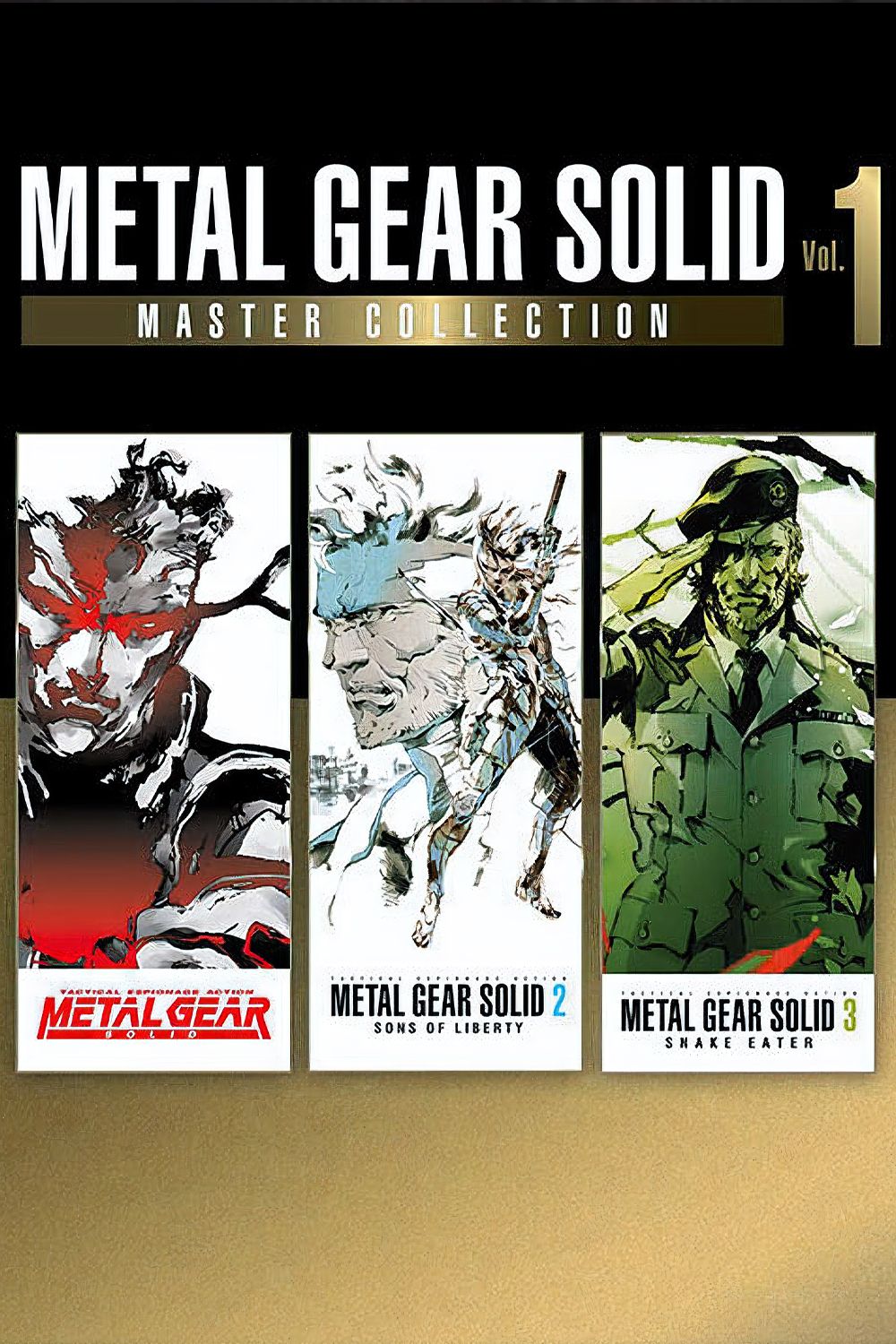
Metal Gear Solid: Master Collection Vol 1 Challenges Troubling Gaming Norms

The Metal Gear Solid: Master Collection revitalizes Konami's iconic games on modern platforms, but unveils a concerning issue within the gaming industry's struggle to preserve its rich history
Highlights
Metal Gear Solid: Master Collection Vol. 1 compiles the initial trilogy of the series, allowing enthusiasts to delve into the franchise's humble beginnings on MSX and NES/Famicom.
The unveiling of the Master Collection brings attention to the widespread problem of game preservation. Unlike other types of media, video games have a flawed system for preserving their history. Game preservation faces various challenges, such as the disappearance of titles predating the Digital Revolution and the potential loss of games released since 2010. This is a direct result of the industry's increasing reliance on all-digital sales models and the closure of online servers and storefronts.
Since the PS3 era, Metal Gear Solid: Master Collection Vol. 1 marks the first time that the first three games in the Metal Gear Solid series are collectively available on one platform. It also includes the series' origins on MSX and NES/Famicom. However, the release of these titles on modern hardware is not without its flaws, as there are lingering issues with how the games are optimized for the Master Collection's different platforms. Nonetheless, it is an achievement to have the Metal Gear Solid franchise back in the spotlight. An evident observation in Metal Gear Solid: Master Collection Vol. 1 is how it exposes a wider problem in the gaming industry – the issue of game preservation.
Compared to other forms of media like print or audio, video games have a notably lacking system of preservation and a relative absence of guidelines and protocols to support preservation efforts. Apart from the Video Game History Foundation's current work, there are few other organizations that have taken the initiative to catalog and archive the history of video games as a medium. This has raised widespread concerns about the preservation of the medium's history. In an era dominated by live-service games and the closure of online storefronts, the preservation of digital artifacts has become a pressing matter that many publishers seem to neglect.
Prevalent Issues With Game Preservation
The act of game preservation faces a critical problem regarding the loss of titles before the Digital Revolution. Recent research by the Video Game History Foundation revealed that almost 87% of games released before 2010 have either been lost or are in danger of being lost due to insufficient efforts in preserving video games. Even games released after 2010 are at risk of being lost due to the increasing popularity of live-service games and the transition to all-digital sales models by various publishers and hardware manufacturers. The recent Microsoft leak even suggests that the next Xbox may not have a disc drive.
Another issue is the tendency of hardware manufacturers to shut down online servers and storefronts for older hardware, making online connectivity and functionality impossible. For games that are only available digitally on these outdated storefronts, their content becomes essentially lost over time. Nintendo has already closed the Wii and Wii U storefronts, and the 3DS eShop is scheduled to follow suit in the coming spring. Additionally, many live-service titles have had their servers shut down, rendering the games unplayable.
Metal Gear Solid: Master Collection Should Have Aimed to Preserve the Series Legacy
Konami missed an opportunity to fully preserve the iconic Metal Gear Solid franchise with the release of the Metal Gear Solid: Master Collection. The original Metal Gear and Metal Gear Solid are significant milestones in gaming history, introducing stealth mechanics and cinematic elements. While it's commendable to make these games accessible to modern audiences, the collection lacks the peripheral content that completes the Metal Gear experience.
Instead of solely including the games themselves, Konami could have gone the extra mile. They could have included both the original and HD Collection versions of each game, along with digital scans of the games' manuals and promotional materials. This approach has been successful in other collections like the Mega Man Legacy Collection series.
Metal Gear Solid: Master Collection Vol. 1 is not just any ordinary video game franchise; it holds immense significance within the gaming industry and truly warrants the level of meticulousness being bestowed upon it. Rather than simply replicating preexisting versions, the Metal Gear Solid: Master Collection has the potential to become a defining milestone in the realm of game preservation.
Metal Gear Solid: Master Collection Vol. 1
Konami's compilation package features a collection of games from the Metal Gear franchise, including Metal Gear, its sequel Metal Gear 2: Solid Snake, as well as Metal Gear Solid, Sons of Liberty, and Snake Eater. The package is available on various platforms such as PC, PS4, PS5, Switch, Xbox Series X, and Xbox Series S. It was released on October 24, 2023, and developed and published by Konami. The genre of the games is action and stealth, and they are rated M for Mature 17+, due to blood and gore, drug reference, partial nudity, sexual themes, and violence. You can find more details and purchase options at the Playstation Store, Steam, and Xbox Games Store.
















